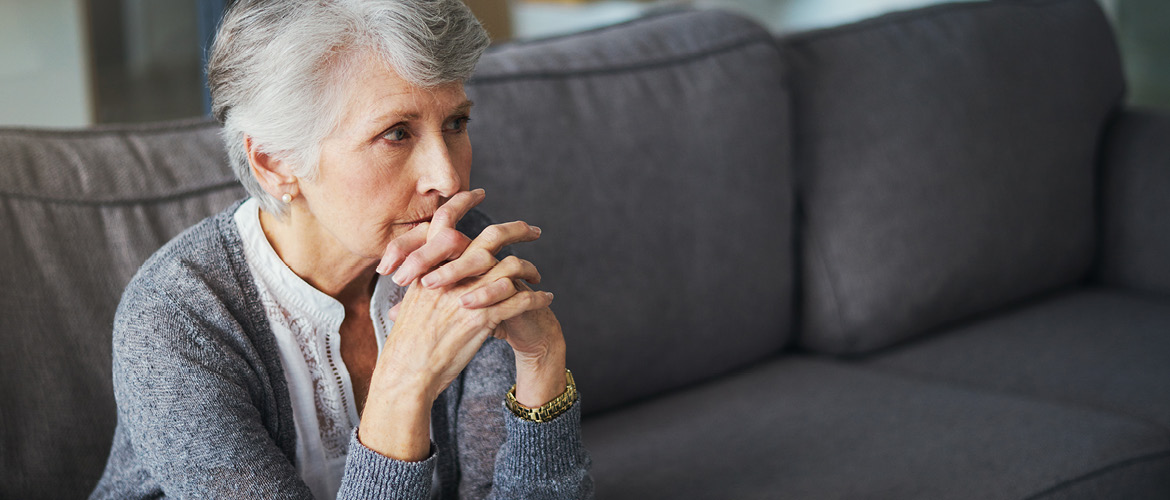By Hollie Glover
Grief and loss are things all of us will go through at one time or another, but few of us are prepared for. This also stands true for caregivers, even after witnessing firsthand the progressive decline of a loved one’s health with dementia. If you are a caregiver searching for ways to cope, there’s no way around grief, but many ways to help you through it.
Acknowledge the Loss
To cope with the loss of a loved one, you need to first acknowledge the loss. Often, when dealing with death, we don’t want to face the reality that the deceased has passed away. We may tell ourselves a number of things to make us believe they are still here, or that their absence hasn’t affected us.
To recover and heal, it’s important to experience that pain and deal with those feelings – both positive and negative. Although you can try to delay it, there is no way around this. You are permanently separated from someone you love and have to come to terms with the situation to move forward.
Allow Yourself, and Others, to Grieve
Finding healthy ways to grieve is crucial. Everyone is unique, and each person’s response to death will be different. Among many other personal factors, your grieving process as a caregiver will be dependent upon your relationship with the deceased, how long they’ve been dealing with dementia, and the severity of their sickness.
Usually, you are not alone. It’s important to remember that others are grieving, too, and that their grief may look very different from yours. In many cases, the entire family has to find a way to go on without their loved one; and like you, they must do so on their own terms.
Understand Grieving Is a Process
Grief is never resolved; it never goes away completely. Certain aspects of the loss will always be with you, and there will be times when your grief reemerges. It can unexpectedly arise at any moment – e.g., from memories, thoughts, etc. This is natural, and a normal part of the grieving process.
Be realistic with your expectations and handle yourself with care. Healing and readjustment to a new normal takes time, practice and patience. It’s achieved slowly and in small steps. Expect to have days that are better than others and for the grief to come and go. You may burst into tears for no apparent reason, and that is OK; sudden feelings of sadness are part of mourning.
Embrace Acceptance
Accepting the loss of your loved one doesn’t mean you don’t love them. It means you do. Don’t dwell on the effects of the disease or things beyond your control, like the inevitability of death, but celebrate and reverence the positive memories of your loved one and the good times you shared together.
Reframing your perspective can also help you avoid the guilt of letting go and motivate you to reinvest your emotional energy into moving forward. You may find relief in knowing your loved one is no longer suffering. Or, from a spiritual or religious point of view, realizing your loved one is now in a better place may bring you comfort.
Other Helpful Tips
- Accept support and ask for help. Don’t try to get through grief alone. You need to talk through your emotions and be heard with compassion and concern. Seek the support of a trusted friend, family member, licensed therapist or support group.
- Expect to repeat your story many times. You will likely cry and talk a lot as you journey through the grieving process. This is very healthy and is your way of dealing with the reality of the loss as you share it with others.
- Do not make big life changes at this time. Some people will attempt to postpone their grief by immediately moving, making a big investment, etc. These premature changes can result in more loss and stress. Give yourself some time to heal before making big decisions or commitments.
- Find a way to make something meaningful come from the death. Many nonprofits, scholarship funds, laws, support groups, foundations and more originated because someone experienced a loss and repurposed their grief to help others. This can help motivate you to stay active and stay connected to others.
Reaching Recovery
Although grief doesn’t have a definitive duration, as you begin to recover, you will see positive changes take place. Eventually, you’ll start to enjoy aspects of life without feeling guilty. Your hurt will still be present, but will become less overwhelming and more manageable. Whether it be days, months or years after the loss, you will be able to move forward in your life and make plans for the future.
Need help getting to that place? Join James L. West’s Family and Friends Support Group, facilitated by a licensed professional counselor and certified dementia care specialist, or listen to our podcast covering the benefits of caregiver support groups.
Learn more about our services and programs here or by calling 817-877-1199 .

